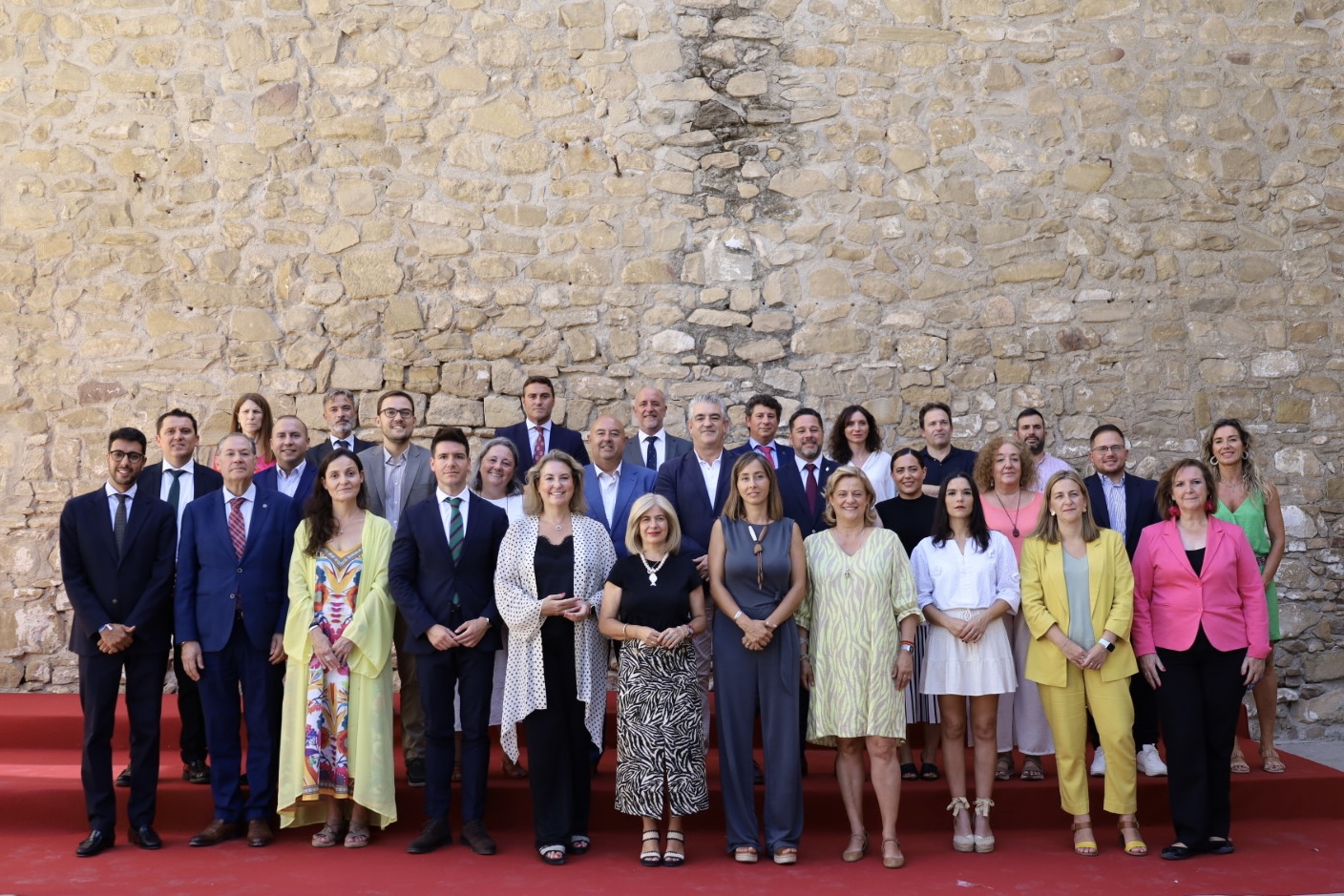This week, San Cristóbal de La Laguna took part in a new working meeting of the Group of World Heritage Cities of Spain (GCPHE), which included information committees on Culture, Sports and Education; Tourism; and Heritage and the City. The meeting took place in the city of Úbeda and brought together representatives from the fifteen cities that make up the Group, with the aim of advancing joint lines of work and strategic planning for the coming year.
Representing the La Laguna City Council were the Councillor for Heritage, Adolfo Cordobés; the municipal representative for Tourism, Estefanía Díaz; and the Councillor for Culture, Adrián del Castillo. During the day, key issues related to tourism promotion, the protection of historical heritage and urban planning, as well as cultural and educational revitalisation, were addressed, defining the main lines of action for 2026.
Adolfo Cordobés, Councillor for Cultural Heritage in La Laguna, said that “the work carried out by the Group’s Heritage Committee has enabled us to reach some very valuable conclusions about conservation, innovation in management and the international promotion of our historical legacy. La Laguna’s participation in this meeting has also given us the opportunity to share our strategic plan and the experiences we are developing in the municipality, an exchange with other cities that strengthens collaboration and helps us to consolidate a more effective and sustainable management model that is closer to the citizens.”
For her part, the Councillor for Tourism, Estefanía Díaz, recalls that ‘La Laguna is the only World Heritage City in the Canary Islands and from this Department we work to dignify and enhance this status, which positions us as a cultural and heritage reference of enormous value in the islands. This recognition is also an obvious tourist attraction that reinforces our projection and invites us to continue caring for and disseminating our historical legacy’.
Finally, Adrián del Castillo pointed out that during his commission, the great impact and success of the eighth edition of Heritage Night was highlighted, where not only the value of emblematic buildings was praised, but also the power of culture and art as vehicles of expression to reach the public and convey the meaning of the traditions and history of the fifteen cities.
During this working day, key issues related to tourism promotion were addressed, such as the protection of historical heritage and urban planning, as well as cultural and educational revitalisation, defining the main lines of action for 2026.
Likewise, the work carried out in recent months was assessed and the lines for the Group’s participation in FITUR 2026 were drawn up, with the final proposal to be approved at the November Assembly. On the other hand, key issues such as the role of new technologies, sustainability and tourism quality were discussed, highlighting the actions developed in the Group’s cities to attract travellers with a profile that adds value.
Finally, among other aspects, other projects were discussed, such as educational proposals to bring heritage closer to primary and secondary school students, highlighting collaborations with universities and Erasmus programmes, which will continue to promote knowledge and awareness of our cities throughout the country.
.



